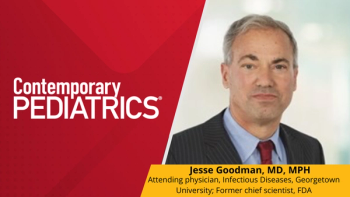
- Vol 37 No 7
- Volume 37
- Issue 7
Appendectomy successfully averted in child considered at high surgical risk
A case report examines whether a high-risk child with appendicitis will need surgery.
A recent case report describes how appendicitis in a 9-year-old child with sickle cell disease was handled effectively with nonsurgical treatment.
The child, who has sickle beta zero thalassemia and moderate persistent asthma, visited an emergency department because of lower back, chest, and abdominal pain that had not responded to ibuprofen. Doctors diagnosed vasoocclusive crisis, and the child was given intravenous fluids and analgesia. Abdominal ultrasound did not visualize the appendix, and results of abdominal computerized tomography were consistent with acute appendicitis without perforation.
Considered a high surgical risk, the child was given medical therapy, including ciprofloxacin and metronidazole, and after a day of not eating was transitioned to a full liquid diet. By the fifth day of hospitalization his respiration had improved significantly, and he was discharged on day 6. A year later, his abdominal pain had not returned (
Thoughts from Dr. Farber
Although rarely discussed in pediatric literature, using medical therapy with early introduction of antibiotics for acute appendicitis is not a new concept. Given how easily and relatively risk free appendectomy is to perform (especially laparoscopically), surgery is still the standard of care. However, keep an open mind about medical treatment if a surgeon believes that operating might be the greater risk.
Articles in this issue
about 5 years ago
NIH funds 8 new studies on COVID-19 related MIS-C in childrenover 5 years ago
COVID-19: It’s not the same-old same old!over 5 years ago
Newborn’s rash involves eyes and noseover 5 years ago
Itchy black spots: Poison ivy or something else?over 5 years ago
Could fever improve COVID-19 outcomes?over 5 years ago
Ultrasound accurately diagnoses midgut volvulusover 5 years ago
Levonorgestrel IUDs are safe and effective in adolescentsNewsletter
Access practical, evidence-based guidance to support better care for our youngest patients. Join our email list for the latest clinical updates.








